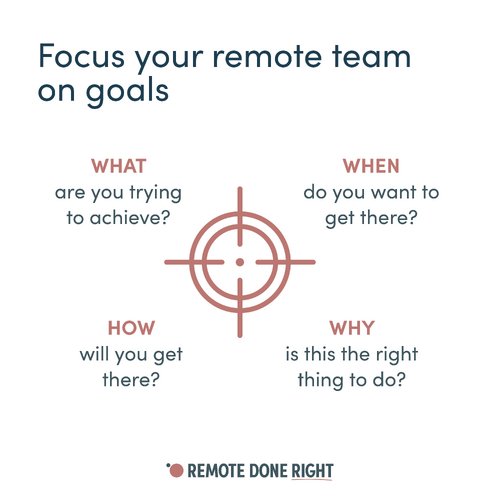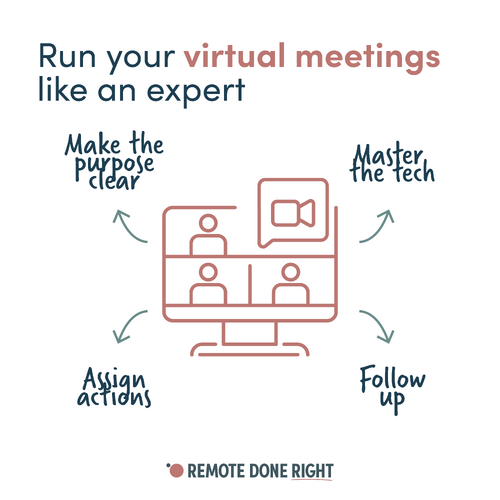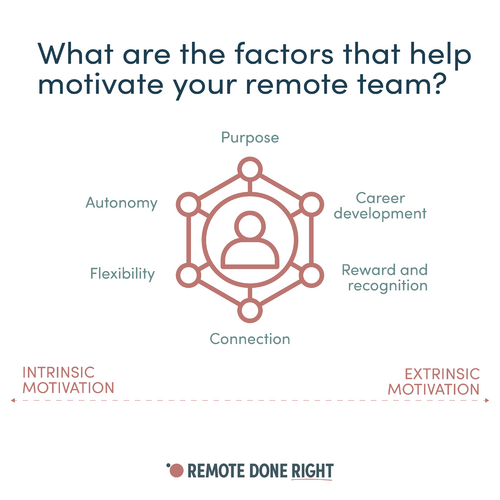Articles
Collaboration
Know your purpose – goal setting for remote teams
With teams spread across various locations, setting clear and achievable goals is crucial to ensure everyone stays on track and works towards a common objective.
Setting goals is fundamental for any team, but it holds even more significance for remote teams. When individuals are not physically present in the same office, it's easy for tasks to become fragmented and priorities to become unclear. Clear goals provide direction and focus, ensuring that every team member understands their role and r…
Mastering virtual meetings: tips and tools for success
Running an engaging remote meeting takes skill and planning. Virtual meetings can be a time sink. With a bit of planning and consideration, you can make them engaging and productive.
Prepare
Set clear objectives: the first step in preparation is defining the purpose of the meeting. What do you hope to achieve? Clear objectives help keep the meeting focused and ensure that all participants understand why they are there.
Choose the right platform: not all video conferencing tools are created e…
Motivating your remote team
Don't let your remote team drift.
When you focus on understanding what drives your team, setting clear goals, encouraging continuous learning, fostering a positive environment and recognising achievements, you help to keep your remote team motivated and focused on organisational goals.
Take Action
Understand what motivates your team
People need a mix of intrinsic and extrinsic motivators to perform at their best. Intrinsic motivators are internal, and include personal growth, job satisfacti…
Navigating time zones: strategies for effective remote team collaboration
When your remote team are not just working from home but working around the world, it’s important to agree on ways you can stay connected and collaborate effectively.
Why it matters
In distributed teams it can be hard to coordinate meetings that work for everyone. It may be necessary to schedule meetings outside regular work hours, which can affect the work-life balance of your team. When team members are not online simultaneously, questions and tasks may take longer to address. This can slow …
When people feel valued, they commit.
When organisational goals support individual goals, employees feel valued. People who feel valued are more likely to engage with the goals of the organisation and work harder to achieve them.
Why It Matters
Employee engagement can be challenging in remote teams. Without face-to-face interaction it’s hard to build trust which is an important stepping stone to engagement.
Take Action
To build engagement in your remote team, focus on communication and collaboration through:
Regular check-ins a…
Create the perfect remote work plan: A leader's guide
Teams need to collaborate and compromise on remote work arrangements to come up with a plan that works for everyone.
Why it matters
Remote work is no longer a temporary solution. Without a thoughtful operations plan, distributed teams can quickly become disjointed, leading to miscommunication, unmet deadlines, and ultimately, dissatisfied employees. Effective remote work planning isn't just a logistical necessity; it's a strategic imperative that ensures the work gets done and people remain ha…
Convince the introverts: organising in-office time for your remote workers
The thought of remote workers returning to a traditional office setting, even for a single day, often meets with scepticism and reluctance. However, a well-planned and purpose-driven office day can offer surprising benefits that enhance team dynamics, boost productivity, and rejuvenate company culture.
Why it matters
By balancing remote work with occasional in-person collaboration, you can leverage the strengths of both approaches, fostering a more cohesive, productive, and engaged team.
Take…
You can't trust people you don't know
In an office trust builds organically. In a remote team you need to intentionally schedule activities that build trust.
Why It Matters
Trust is the cornerstone of any successful team, but it's especially crucial for remote teams. Without face-to-face interactions, misunderstandings can easily arise, leading to frustration and decreased productivity.
Building trust in your team helps to create an environment where individuals feel comfortable sharing ideas, asking questions, and seeking feedba…
Keep lines of communication open for your remote team
Miss a few updates when your team is in the office, no big deal. Miss a few updates in a remote environment and things can go downhill fast.
Why It Matters
Failing to consider and address communication issues with a remote team can lead to misunderstandings, reduced collaboration and decreased morale.
Take Action
Establish a culture of openness and inclusivity by encouraging team members to voice their concerns and provide feedback regularly. Set up regular check-ins and virtual meetings to …
Managing outcomes rather than actions
The shift to remote work requires a rethink of management style. Traditionally, managers might have focused on the specific process employees follow to complete tasks. However, this can lead to micromanagement and distrust, particularly in remote settings where direct oversight is difficult. Instead, by clearly communicating desired outcomes to their teams, leaders can empower team members to use their expertise to determine the best ways to achieve those outcomes. This approach fosters trust, e…










